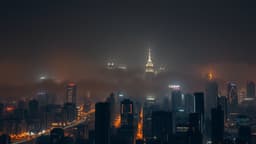Home / Environment / Delhi-NCR Chokes Under Toxic Smog as Pollution Levels Soar
Delhi-NCR Chokes Under Toxic Smog as Pollution Levels Soar
13 Nov, 2025
Summary
- Severe air pollution triggers public outrage, protest at India Gate
- Stubble burning in neighboring states a major episodic source of pollution
- Combination of local emissions and seasonal factors worsens air quality
On November 13, 2025, the Delhi-NCR region remains in the grip of a severe air pollution crisis, with the Air Quality Index (AQI) crossing the "severe" threshold of 400 at multiple monitoring stations. Despite the government's enforcement of stricter anti-pollution measures, including banning non-essential construction and restricting industrial activities, the capital and its surrounding areas continue to choke under toxic smog.
The worsening air quality has triggered public outrage, with a rare protest held at India Gate over the weekend, where dozens of citizens demanding cleaner air were detained. Satellite data indicates a sharp rise in stubble burning across northern India, one of the recurring factors behind Delhi's toxic winter smog. Authorities say the current steps aim to curb further deterioration, but pollution remains a persistent challenge for the region.
The problem stems from a combination of persistent local emissions, such as vehicular pollution, industrial activities, and biomass burning, as well as seasonal events like adverse weather conditions and agricultural crop burning in neighboring states. Experts warn that the situation is likely to continue, with the health crisis in Delhi-NCR only expected to worsen in the coming years.



